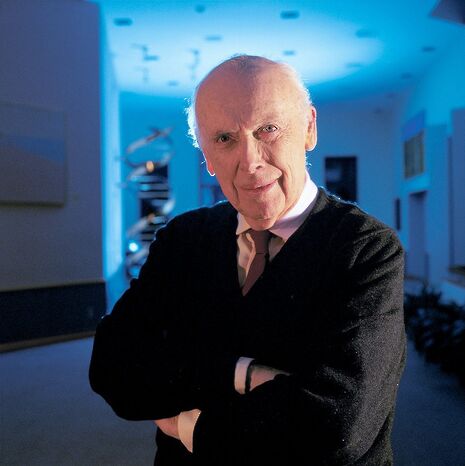Stop making excuses for the academically brilliant
In the face of a variety of recent incidents, Tanvi Acharya argues that we cannot overlook the ethical failings of many great scientists

It took Cold Spring Harbor – a world-leading research institution – 12 years to finally strip James Watson of honorary titles after he repeated erroneous claims that genes are responsible for differences between black and white people on IQ tests.
Aside from the fundamentally flawed concept that a single number can capture all the facets of intelligence, IQ tests also do not account for social differences; indeed, adoption from a poor home to a well-off home is associated with a 12-18 point gain in IQ. But a more pertinent point is that genes are all too readily taken as destiny when, in reality, many genes interact together and are themselves influenced by environmental factors in ways that make it hard to anticipate behavioural traits – such as intelligence. The biggest irony is that genetics, a field for which Watson is deemed the father, has unequivocally shown that a connection between race and intelligence holds no water.
No one denies that it is important to honour scientists. We rightly name laboratories after them and award them prestigious prizes to recognise their incredible contributions to society. Inevitably, fame provides scientists with a platform; however, this platform comes with an obligation of responsibility. It is clear that James Watson has violated this responsibility by repeatedly espousing racist remarks.
Recognising his accolades in a manner that continually allows him a platform leads us to unwittingly legitimise these profoundly unscientific views.
So how do we tackle the offensive remarks made by individuals that have revolutionised science? The first step is recognising that scientific prowess does not assume ethical behaviour. Anyone who has read Watson’s autobiographical novel, The Double Helix, will know that sexist portrayals of women – most notably Rosalind Franklin, who was instrumental in providing the evidence critical to Watson and Crick’s discovery – and a contempt for ‘stupid’ people are common tropes.
Watson is not alone. Einstein, for example, may have been a genius of physics, but his travel diaries reveal shocking xenophobia against Chinese people, and the treatment of his first wife also remains questionable. Or take Nikola Tesla – the inventor of alternating current – whose cult-figure status explains his appearance in the Oscar nominated film, The Prestige. Tesla, however, was also a staunch proponent of eugenics. These men are all proof that scientific greatness has no bearing on a person’s character.
We must ensure that an individual’s scientific accomplishments don’t exempt them from criticism. Our society has a tendency to place Nobel Prize winners on a pedestal and grant their words an authority that may not be deserved. Instead, they should be subject to the same scrutiny as any other person, especially when espousing dangerous and discrimatory rhetoric. Crucially, we should uphold the responsibilities that assign credibility to science, which are those of critical observation and experimentation. When notable institutions are indolent in their rejection of unsubstantiated views, lies are given undeserving validation, which has potentially dangerous consequences.
We are now facing a vast number of situations in which deplorable remarks made by ‘great’ men are seen simply as a ‘product of their time’. Open discussion is needed to strike a balance between respecting scientific legacies while simultaneously condemning certain problematic behaviour.
 News / Deborah Prentice overtaken as highest-paid Russell Group VC2 February 2026
News / Deborah Prentice overtaken as highest-paid Russell Group VC2 February 2026 Fashion / A guide to Cambridge’s second-hand scene2 February 2026
Fashion / A guide to Cambridge’s second-hand scene2 February 2026 News / Downing Bar dodges college takeover31 January 2026
News / Downing Bar dodges college takeover31 January 2026 Comment / College rivalry should not become college snobbery30 January 2026
Comment / College rivalry should not become college snobbery30 January 2026 Lifestyle / Which Cambridge eatery are you?1 February 2026
Lifestyle / Which Cambridge eatery are you?1 February 2026









